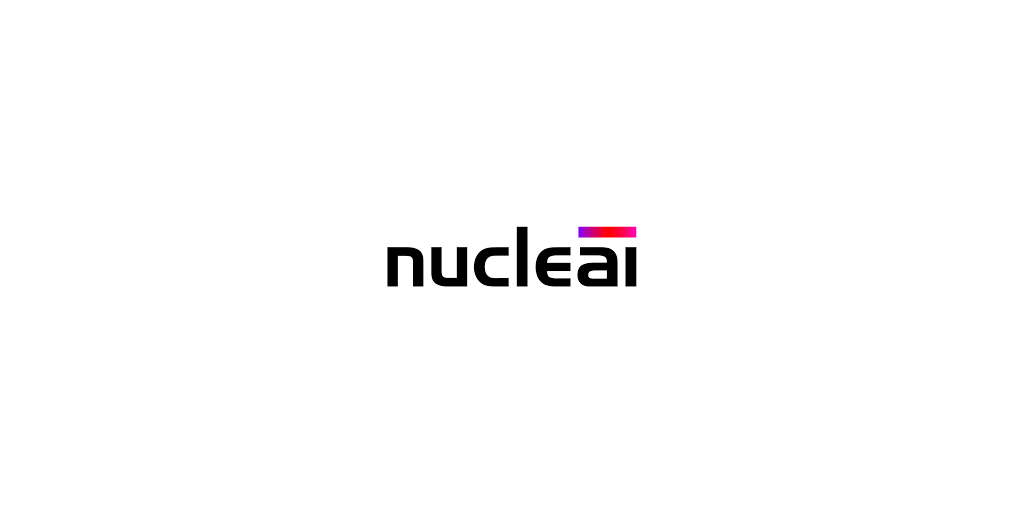Detailed Advances in Patient Stratification, Treatment Resistance Mechanisms, and Personalized Immunotherapy for Non-Small Cell Lung Cancer and Melanoma to Improve Treatment Precision and Patient Outcomes
CHICAGO--(BUSINESS WIRE)--Nucleai, an AI-powered spatial biology company, will present two abstracts at the Society for Immunotherapy of Cancer (SITC) 2024 Annual Meeting. The presentations will detail how Nucleai's AI-driven spatial biomarker analysis provides actionable insights into patient treatment for non-small cell lung cancer (NSCLC) and melanoma, focusing on treatment resistance and patient stratification.




Spatial biology examines the organization of cells and proteins in their natural tissue environments, providing insights into disease progression and treatment responses. By mapping the precise spatial arrangement of cellular structures, researchers can gain insights that were previously challenging to achieve. Nucleai's AI-driven approach enhances this by extracting precise, actionable insights from multiplex immunofluorescence (mIF) datasets. This integration of AI into spatial biology enables biomarker discovery and patient stratification at scale, directly contributing to better response rates in clinical trials, supporting tailored treatment strategies, and optimizing patient outcomes. Unlike other approaches that focus on general research capabilities, Nucleai emphasizes practical applications that enhance clinical trial efficiency, personalize immunotherapy, and address specific treatment challenges such as immune resistance.
First Abstract: Addressing Immunotherapy Resistance in NSCLC
In collaboration with Dr. Arutha Kulasinghe of The University of Queensland and Dr. David Rimm from Yale University, the first abstract profiles the metabolic states of tumor and immune cells in NSCLC patients treated with checkpoint inhibitors.
Dr. Rimm commented, “The identification of immune and metabolic profiles allows us to pinpoint patients likely to respond to combination therapies, which is key in managing NSCLC more effectively. By understanding these unique profiles, we can better overcome treatment resistance, ultimately leading to improved patient survival outcomes. Nucleai’s AI biomarker platform and scientific expertise were crucial in helping us rapidly analyze the spatial data from multiple patient cohorts and in extracting the most clinically relevant insights.”
NSCLC is a leading cause of cancer mortality globally, and the variability in patient response to immunotherapy remains a significant challenge. This abstract's findings highlight biomarker signatures that could guide the development of combination treatment strategies aimed at overcoming treatment resistance, increasing response rates, and improving overall patient survival metrics in NSCLC treatment.
Link to abstract info: SITC 2024 Abstract Titles and Publications (#109)
Second Abstract: Integrating Spatial Biomarker Analysis in Melanoma
The second abstract, in collaboration with Dr. Paolo Ascertio and Lunaphore, a Bio-Techne brand, examines the spatial proteomic profile of melanoma patients undergoing immunotherapy as part of the SECOMBIT trial.
“This study demonstrates our shared vision with Nucleai to accelerate predictive spatial biomarkers development and showcases the COMET platform's unique potential in enabling the design of more effective immunotherapy strategies in advanced cancers such as metastatic melanoma,” said Matt McManus, President of Bio-Techne’s Diagnostics & Genomics Segment. “We’re committed to advancing spatial biology in clinical research to push the boundaries of healthcare and ultimately improve patient outcomes.” The SECOMBIT study involves characterizing immune cell subtypes, their functional states, and the expression of checkpoint markers, providing specific details that can guide immunotherapy decisions for these patients.
This study illustrates the integration of spatial biomarker analysis using Nucleai's deep learning platform to accelerate translational research, inform drug development decisions, and ultimately improve patient outcomes by enabling more accurate stratification and effective targeting of immunotherapies. The study presents a framework and an end-to-end high-plex COMET™ workflow leveraging Lunaphore’s core SPYRE™ Antibody Panels integrated with custom antibody panels and Nucleai’s AI platform to analyze immune cell subtypes, functional cell states, and checkpoint markers within the tumor microenvironment.
Link to abstract info: SITC 2024 Abstract Titles and Publications (#117)
Collaborative Impact of Nucleai and Lunaphore (a Bio-Techne brand)
Nucleai and Lunaphore, part of Bio-Techne’s Spatial Biology Division, have collaborated since 2022 to refine biomarker discovery and guide immunotherapy treatment pathways. This collaboration is providing biopharmaceutical companies and clinical research organizations with detailed spatial maps that help predict patient responses more accurately, supporting the development of more targeted treatment strategies.
Avi Veidman, CEO of Nucleai, commented, "Our AI-powered platform is transforming how life science companies and clinicians approach immunotherapy. By working with academic partners and top instrument companies such as Lunaphore, we are developing scalable spatial biomarker solutions that could directly impact clinical trials and diagnostics. Our approach enhances the accuracy of patient selection and reduces risks associated with ineffective treatments, which will ultimately increase the success rates of advanced cancer therapies and improve patient outcomes.”
At SITC 2024, Nucleai and Lunaphore will give attendees an inside look at how their work together is solving one of the most daunting pain points for researchers and clinicians: the time-consuming analysis of billions of data points provided by spatial biology. Attendees will see how AI-powered data analysis combined with the innovative and fully automated COMET can supercharge their existing workflows, extracting meaningful insights that lead to more impactful clinical trials and informed treatment decisions for patients.
With two abstracts focused on the most critical areas of disease research today and an example of how its work with other top companies validates its technology and approach, Nucleai is using SITC 2024 to provide the most comprehensive look yet at how AI-driven spatial biomarker analysis can improve patient outcomes at every step from diagnosis to treatment.
The abstracts presented by Nucleai demonstrate how spatial biomarker analysis can be effectively integrated into biopharma and CRO workflows, particularly for immunotherapies.
About Nucleai
Nucleai is a leading AI-powered spatial biology company, advancing drug development and clinical decision-making through the analysis of cellular interactions and spatial relationships within tissue samples. By adapting geospatial analytical methods initially developed for military purposes, Nucleai applies these capabilities to biospatial analysis in oncology. This enables precise mapping of cellular interactions within tissue samples, which is needed for developing complex therapeutics such as bi-specific antibodies and antibody-drug conjugates (ADCs). Nucleai's approach mitigates risks in drug development by improving the accuracy of biomarker identification, optimizing patient selection, and ultimately increasing the probability of clinical success. The company is backed by investors including Section 32, Sanofi Ventures, Vertex Ventures, M Ventures, and Debiopharm Innovation Fund. For more information, visit www.nucleai.ai.
Contacts
Media Contact
Consort Partners for Nucleai
nucleai@consortpartners.com




